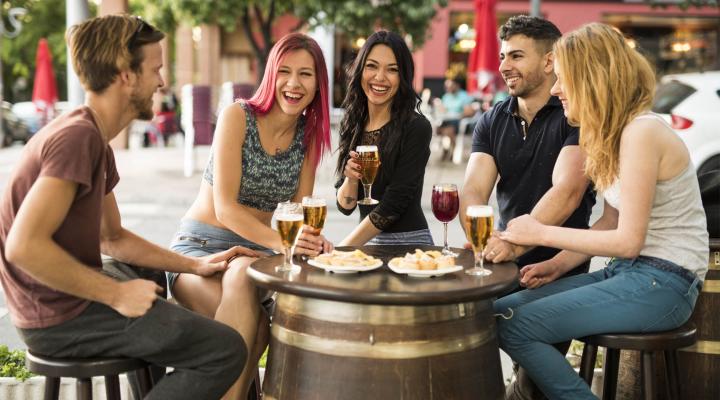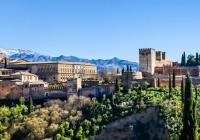
The vast majority of bars and restaurants are open and honest places, regularly enjoyed by British tourists in Spain and local residents alike. However unfortunately, just like in every country where tourists gather, Spain tourists occasionally fall victim to scams designed to fleece them of their money. Many of these cons are illegal, and are attempted in bars and restaurants.
You might find that your bill is subjected to unexpected extra charges, for example, or that you are offered dishes without a price tag, only the find that the price is pure extortion. This is something that the Spanish consumer rights organisation Facua has been warning the public about for years: the hashtag #BaresParaNoVolver (#BarsNotToReturnTo ) should prove very enlightening if you have your suspicions about a particular establishment. Here are just some of the scams that some restaurants will attempt on British tourists in Spain that you should be aware of:
Offering Dishes That Aren’t On the Menu
Many British tourists in Spain are impressed when they’re offered ‘special’ dishes that aren’t on the menu, but if you order ‘ad hoc’ in this way and aren’t either offered a price, or at least the price of the ingredients by weight, then you are effectively giving the bar or restaurant free reign to charge whatever they wish. And Spain tourists are often unimpressed by the extortionate figures on their bill!
In these circumstances, your options are either to ask for a complaints form or simply leave without paying but be warned that the reaction to this option are unlikely to be pleasant. Facua suggest that if the price is much higher than anything else on the menu, you shouldn’t have to pay for it: gather as much evidence as possible (photos of the bill, the menu, and the dish, for example) and report it to the consumer body.
Ordering Drinks Without Seeing a Menu
If you go into a bar or restaurant and only want drinks then it’s likely that you won’t need to see a menu, but some bars may use this as an opportunity to charge whatever they wish. But British tourists in Spain should know that it is a legal requirement that they list drinks prices on their menu. You should ask to see this menu if you feel you’re being overcharged. If the bar or restaurant can’t produce a menu then they cannot charge the figures they are claiming as standard.
Beware of Prices That Fluctuate
In Spain, you may see the acronyms SM (Según Mercado) or PSM (Precio Según Mercado) on the menu: these mean that the market value will be charged for the dish (often for fresh produce or the catch of the day) and the price of the dish will vary depending on what the restaurant paid for it. Whilst this practice itself isn’t illegal, it is illegal not to display the price (either for each dish or by weight) on the menu: you should ask, and be shown clearly, the price of the dish you order.
Adding VAT to Your Bill
In some countries, adding VAT (known in Spanish at IVA) is standard, but in Spain the law is clear. The price on the menu should be the price that you pay: even if a bar or restaurant say ‘VAT not included’ on their menus, British tourists in Spain should not be asked to pay any extra charge. If there is any additional tax added to your bill then you have to right to refuse to pay it.
Being Charged for Anything You Didn’t Ask For
It doesn’t matter what it is: tapas with your drinks, bread before the meal arrives or shots at the end of your meal. You cannot and should not be charged for anything you didn’t ask for, as a general rule. Whilst, often, this charge is small and many customers are happy to pay for it, many more are not. The only exception to this rule is if it is on the menu that these items will be chargeable, or you agree to be served them, in which circumstance, you will have to pay for the produce you have enjoyed.
Falling Victim to Dynamic Pricing
Dynamic pricing is not illegal, but is something that British tourists in Spain should watch out for. The practice involves increasing the price of products on the menu according to either the time of day or the time of year (just as hotel prices increase during the summer season). This is a new trend in Spain, and a way for the hospitality industry to regain its pandemic losses. As it stands, as long as the prices are listed clearly for the time of day or year you are visiting, this practice is not illegal.
Adding Unreasonable Service Charges
Adding an obligatory service charge to a bill is illegal in Spain, but many Spanish restaurants continue to do so, and the charges can be eye-wateringly high. If you ask a restaurant about this charge, or ask them to remove it, however, they are legally obliged to. There is a tipping culture in Spain, and it is good manners to add a little extra to your bill for the waiter or waitress who served you. Service charges of between 10% and 30%, however, can and should be removed if you are the victim of them.
Adding a Supplement for Well Cooked Meat
Amongst the most ridiculous of charges that British tourists in Spain have fallen victim to is an additional supplement added for requesting their meat served well done. Are they being charged for the extra time on the grill? The electricity? Or perhaps for ruining a decent cut of meat? Whatever the reason, this rather bizarre practice is, of course, illegal.
Other Unexpected Charges
You should never be charged for having ice in your drink, ordering a glass of tap water, or even the cutlery you need to eat your meal! All of these practices are illegal unless they are clearly stated on the menu: and if you walk into a restaurant that states they will be charging you for your fork, I would suggest walking straight back out again!
Are you thinking of moving to Spain? Always dreamt of living in the sun and eating good Spanish food every day? Then why not get in touch with Right Casa, our locally based property experts have years of experience in helping house-hunters just like you to find the property of their dreams.

 English
English Español
Español Deutsch
Deutsch Français
Français Svenska
Svenska Nederlands
Nederlands Italiano
Italiano Norsk
Norsk Русский
Русский

































